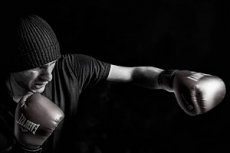How does exercise affect sleep?
Last reviewed: 23.04.2024

All iLive content is medically reviewed or fact checked to ensure as much factual accuracy as possible.
We have strict sourcing guidelines and only link to reputable media sites, academic research institutions and, whenever possible, medically peer reviewed studies. Note that the numbers in parentheses ([1], [2], etc.) are clickable links to these studies.
If you feel that any of our content is inaccurate, out-of-date, or otherwise questionable, please select it and press Ctrl + Enter.

Many trainers and doctors recommend increasing daytime physical activity to improve the quality of night sleep. In order to analyze the relationship between moderate-intensity training and nightly rest, scientists from Concordia University studied data from previous scientific works. As a result, it was found that physical exercises , which were carried out at least 2 hours before going to bed, had a positive effect on its quality. However, activities carried out immediately before bedtime were more likely to be reflected unfavorably: people could not fall asleep for longer, and in general slept less.
During testing, scientists analyzed 15 works, in which almost two hundred people took part. Some of the participants were not physically active, while others were in good physical shape and did not complain about the quality of sleep. The average age of participants is from 18 to 50 years.
Subjects were assessed by means of polysomnography , actigraphy, or subjective judgment of the effect of physical activity on sleep. What did the experts find out?
If the training was completed at least 2 hours before going to bed, then falling asleep was faster, and the night's rest was longer. This effect was especially noticeable in people who previously did not differ in pronounced physical activity. If the training was carried out less than two hours before going to bed, then the effect was the opposite: people could not fall asleep for a long time, and the night's rest was intermittent and short.
The scientists noted that the best effect on sleep was exercise lasting from half an hour to an hour, at moderate intensity. And the most effective and useful exercise was recognized as cycling.
High-intensity training, regardless of the frequency of their performance, negatively affected the REM phase associated with dreams. Presumably, in the future, high-intensity activity may negatively affect the cognitive abilities of participants. This may be due to the fact that too intense exercise increases arousal and body temperature, plunges the body into a state of stress and leads to sympathetic hyperactivity. As a result, the circadian rhythm can be inhibited, which entails a slow release of melatonin, a hormone associated with nighttime sleepiness.
Representatives of the Academy of Nutrition and Dietetics note that high-intensity workouts will be most useful if they are carried out in the first half of the day. Only in this case can we expect a normal ratio of physical activity and quality sleep. However, it is necessary to take into account the individual characteristics of the organism. You should listen to your body, sensations, in order to understand which mode is right, and when it needs to be adjusted.
The results of the study were published on the pages of Science Direct.
